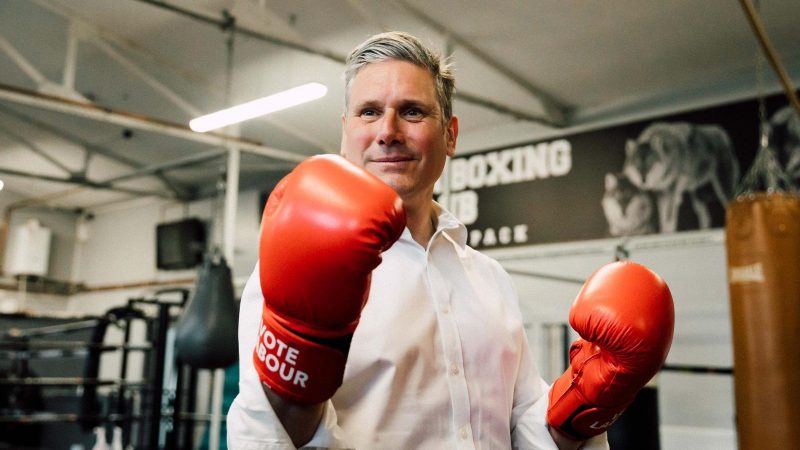
For me, preparing for the Labour Party’s 2022 conference involves looking closely at the titans of Labour history. I’m rehearsing my play about Labour’s most successful leader, and my political hero, Clement Attlee, for two performances at the Epstein Theatre in Liverpool on the Monday and Tuesday of the conference. And I have been reading the excellent new biography of Labour’s second most successful leader – and Keir Starmer’s political hero – Harold Wilson, by Shadow International Trade Secretary Nick Thomas-Symonds. Attlee’s and Wilson’s political lives have clear lessons for our present leader, both in the current project of getting elected to government and for the next stage of making the best possible use of whatever time the electorate gives the Labour Party in government.
Neither Attlee nor Wilson relied on the awfulness of their Tory predecessors to get elected. They carved out their own political space and made it clear that electing them meant an utterly different sort of government. Attlee could have contented himself with pointing to the cruelty of Conservative government in the 1930s. Wilson could have simply pointed to the Conservative Party under Alec Douglas-Home, which had become snobbish and complacent and took voters for granted.
But in 1945, Attlee had a clear and detailed programme, endorsed by Labour’s 1944 conference and elaborated upon each time the Labour leader spoke. And Wilson’s famous 1963 ‘white heat of technology’ speech was not just a rallying
cry; it was a picture of a new society, a freer, fairer future where power was no longer wielded by “men whose sole claim is their aristocratic connections or the power of inherited wealth or speculative finance”.
Starmer’s poll ratings went up sharply when he spelled out an alternative route through the cost-of-living crisis. He should do more of that. Where is his plan to rescue the NHS? To ensure fairness at work? To recreate our devastated
education system and equip it to deliver educated citizens, not just skilled workers? An ambitious but believable vision for a better future under a Labour government would have his ratings shooting up.
And he needs this, not just to get elected, but to make a Labour government successful in making a better society. A recent poll, which the Times triumphantly headlined “Britain falls out of love with the NHS” found that while voters believe the NHS is underfunded they are not ready for tax rises to pay for it. Even if Starmer could get elected without preparing the ground, he would not be able to deliver a better society in government.
Starmer needs to spell out exactly what is needed, and why it is worth the money it will cost. This sounds like an argument from Labour’s left, but neither Attlee nor Wilson came from the left. Attlee, though never a part of Labour’s left, thought Labour should be led from the left. Wilson, who had roots in the left (he had resigned from government alongside Aneurin Bevan) said: “The Labour Party is a moral crusade or it is nothing.”
The question – or, if you like, the problem – of Labour’s left has preoccupied every Labour leader from Ramsay Macdonald onwards. Some leaders – Macdonald, Hugh Gaitskell, Tony Blair – tried to freeze them out, with varying degrees of success.
Attlee and Wilson, on the other hand, brought them into the tent and kept them there as long as they could. Wilson kept Tony Benn in government despite famously observing that “he immatures with age”. Attlee’s appointment of Nye Bevan to the key portfolio of health and housing was greeted with shock and incredulity by his colleagues. The equivalent today would be Starmer giving a key job to John McDonnell (which actually wouldn’t be a bad idea).
Labour’s left at its worst is querulous, sectarian, vindictive and a gift to our enemies. At its best, it’s a source of enthusiasm and of radical ideas that catch voters’ imaginations – and it helps protect a leader who delivers change, as Attlee did. Starmer can make use of the left – not, probably, forever (Bevan did eventually resign) but for long enough to help him rebuild our country. Does he want to do that? Or does he want permanent war with the left? If he does, he will win it – but it will limit his electoral appeal to those who think he is the least bad option, and limit what he does in government to the less courageous and imaginative.
Francis Beckett’s play Clement Attlee will appear next at the Epstein Theatre, Liverpool, on 26 and 27 September. Book here.




More from LabourList
Government abandons plans to delay 30 local elections in England
‘The cost of living crisis is still Britain’s defining political challenge’
‘Nurses are finally getting the recognition they deserve’